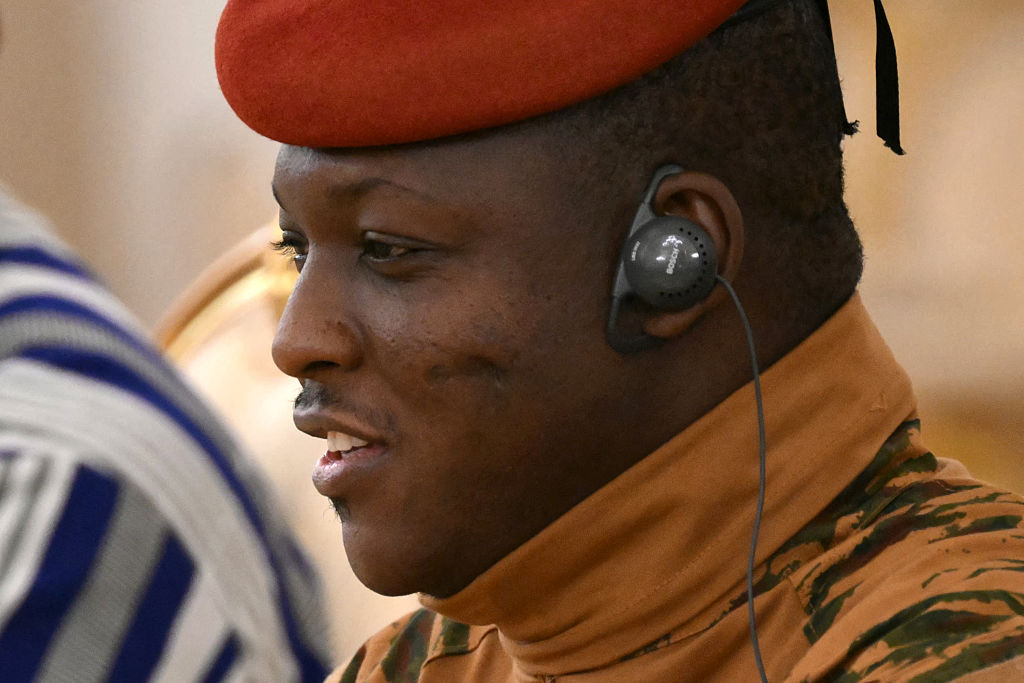Shortly after Capt. Ibrahim Traoré led Burkina Faso’s second coup in a year in September 2023, deepfake videos began circulating that urged Burkinabe citizens to support the coup.
Since then, Traoré has become the star of a variety of videos manufactured to portray the junta leader shaking hands with world leaders, berating the International Monetary Fund, or addressing Pope Leo XIV in fluent English.
The videos are carefully crafted to elicit an emotional reaction.
“When people hear voices, even artificial ones, boldly articulating what they’ve always felt but rarely heard echoed, it sparks something powerful,” said Yaw Kissi, a pan-African writer popular on LinkedIn, according to HumAngle.
Deepfakes are video or audio content generated by artificial intelligence (AI) and designed to simulate the images and voices of prominent individuals to promote false information. They are spreading rapidly across Africa, where most countries have limited capacity to identify and block them.
In areas such as Burkina Faso, Mali and Niger, Russia’s former Wagner Group, now known as Africa Corps, is one likely source of deepfakes promoting pro-Russian, pro-junta narratives.
Traoré’s speeches, for example, were produced by two France-based groups, Black Rebellion and Univers Inspirant, that have dedicated more than 90% of their content to the Burkinabe junta leader. Although the videos praise Traoré, the goal appears simply to make money from Traoré-oriented content that millions of viewers share, experts say.
“Today, we have an inspiring message from Ibrahim Traoré,” London-based IT training consultant Adrian Moore told HumAngle recently. “Tomorrow, we could have Ibrahim Traoré promoting prejudice or justifying crimes, and it would be accepted, even acted upon.”
Burkina Faso is just one example of Africa’s deepfake environment. Across the continent, media consumers experience an array of manufactured content, from deepfakes targeting rivals during elections to synthetic newscasters broadcasting propaganda, their faces appropriated from unsuspecting models. The warring sides in Sudan have used deepfake images to demonize each other online.
Media outlets have been targeted on multiple occasions in an apparent effort to lend credibility to false information. Qatar-based Al Jazeera recently exposed a scheme involving “ghost reporters” that used the identities of dead people to spread pro-Russian propaganda in West and Central Africa.
An investigation by the African Digital Democracy Observatory discovered a deepfake Ghanaian journalist with her own social media profile and website. Her apparent authenticity made it possible to inject false information about Ghanaian leaders and international organizations into African news media, the investigation found.
Along with AI-generated deepfakes, Africans also are fed so-called cheapfakes that can be as simple as replacing an existing video’s audio track with AI-generated speech that mimics the video subject’s voice.
“Thanks to breakthroughs in generative AI, anyone can now be made to say or do virtually anything on screen, with staggering realism,” Ecofin Agency analysts reported recently.
The purveyors of deepfakes are exploiting people’s tendency to believe what they see and hear online, according to Raphael Nkolwoudou Afane, a Cameroon-based legal expert and digital law specialist.
“For centuries, visuals equated to proof of authenticity. But today, technology can fabricate incredibly convincing realities,” Afane told Ecofin Agency. “The human brain, untrained to tell the difference between digital trickery and genuine content, is an easy target for these sophisticated illusions.”
Absent clear regulation of social media in African countries, the risk from deepfakes is growing, experts say. At the same time, popular social media platforms have become key sources of information even as they have scaled back their attempts to weed out deceptive content.
From 2018 to 2023, six countries — Algeria, Benin, Egypt, Mauritius, Rwanda and Senegal — developed national AI strategies. Others, including Ethiopia, Ghana, Kenya, Mauritania, Morocco, Nigeria, Uganda, South Africa, Tanzania and Tunisia, have made progress on AI policies and institutions aimed at addressing AI challenges.
Uganda, for example, updated its Computer Misuse Act in 2022 to criminalize the intentional spreading of false information, including deepfakes.
Experts say African nations need to do more to promote the proper use of AI and keep deepfakes from undermining political and economic stability across the continent.
“Africa cannot afford to remain passive,” Ecofin Agency analysts wrote. “The fight for digital truth is deeply tied to issues of sovereignty, democratic stability, and public trust. It is not about rejecting AI progress, but ensuring its responsible use, and putting safeguards in place to prevent its abuse.”

